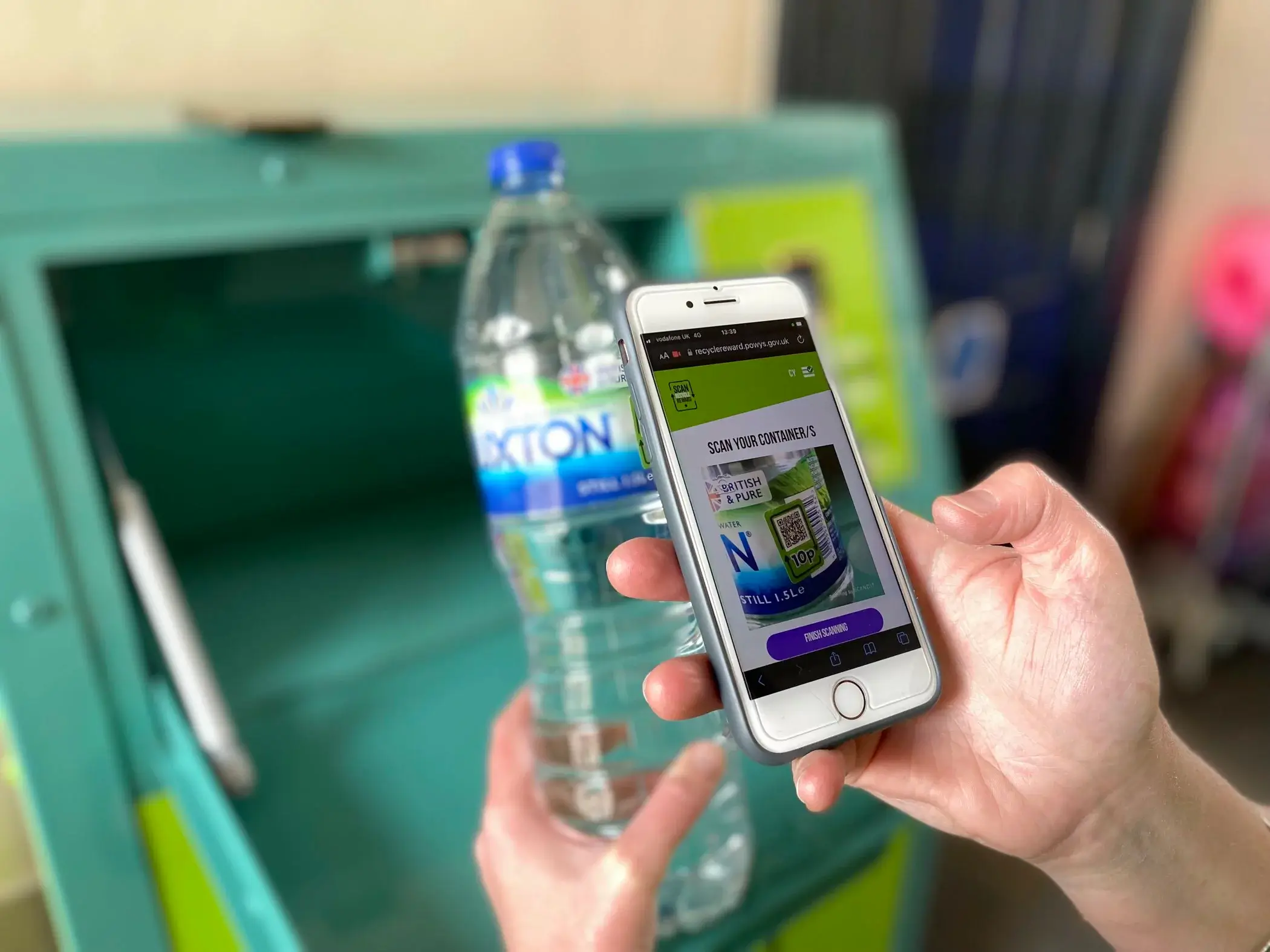A groundbreaking Digital Deposit Return Scheme (DDRS) trial in Brecon, Wales, has demonstrated the potential of this technology-driven approach to boost recycling and streamline the return process for consumers. The trial, sponsored by the Welsh Government and led by the DDRS Alliance, revealed strong public engagement and a clear preference for convenient kerbside return options.
High Compliance and Kerbside Convenience
The 16-week trial involved assigning unique digital codes to eligible beverage containers. Participants scanned these codes, enabling the containers to be tracked throughout their journey and redeemed for rewards at various return points.
Key Trial Highlights:
- Consumer Adoption: 18,794 rewards claimed, demonstrating high compliance within the trial community.
- Kerbside Preference: 58% of returns took place via curbside collection. Projections indicate this figure could reach 70-80% when multipacks and certain chilled products are included in a full-scale DDRS.
- Valuable Insights: The digital tracking system provided rich data on consumer behavior, product flows, and return point preferences.
- System Integrity: Minimal fraud was detected, highlighting the robustness of the digital approach.
- Positive Outlook: 56% of participants would recommend DDRS for future implementation.
How DDRS Works
Unlike traditional deposit return schemes that often rely on physical reverse vending machines, DDRS leverages unique digital codes and a flexible range of return points. This enables greater convenience for consumers and facilitates integration with existing recycling infrastructure.
DDRS Innovators
The Brecon trial was made possible through the collaboration of multiple stakeholders, including the DDRS Alliance, technology providers like Kezzler, and the Welsh Government. Kezzler’s Connected Products platform played a role in securely facilitating item-level serialization, transaction management, and data collection throughout the trial.
Next Steps: Urban Trial
Building on the success of the Brecon trial, the DDRS Alliance is gearing up for a follow-up trial in a complex urban environment. This next phase will test scalability, address potential complexities in high-density areas, and explore segregated kerbside collection methods.
The Future of Recycling
The Welsh trials contribute to a growing body of evidence suggesting DDRS can significantly improve recycling rates, enhance the quality of recycled materials, and create a more consumer-friendly return experience. As technology and innovation continue to advance, DDRS has the potential to reshape the future of recycling practices.
